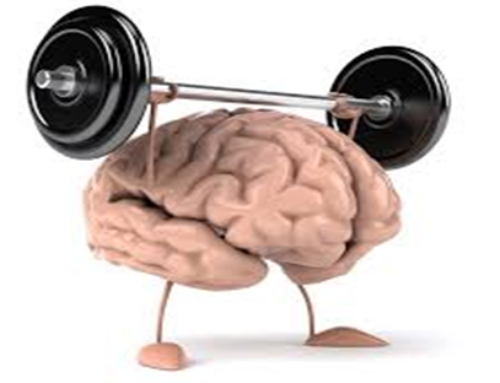The Chemistry of Behaviour
This article focuses at taking a closer look at dopamine and the complex role it plays in the human brain. This neurochemical influences a myriad of human behaviours including our cognition, voluntary movement, emotion, motivation, our punishment and reward systems, sleep, mood, attention, working memory and feelings of pleasure.
This vital part of our biochemistry stabilises our brain activity, regulates the flow of information to each part of the brain and controls movement. One of the more significant roles of dopamine is the influence it has on our sleeping and waking cycles. You may not be able to readily recognise low dopamine levels but you are probably familiar with the effects of jet lag when you are travelling. This feeling is actually a dopamine imbalance that is affecting your body as a result of your disturbed sleep pattern. People can also deplete their dopamine stores when they are stressed, anxious, starving, on low carbohydrate diets or experience intense trauma. On the flipside, dopamine levels can be elevated when our serotonin levels are elevated, like after performing long duration exercise at moderate intensity. Interestingly, another significant role of dopamine is the role that it plays in addiction. Because the release of dopamine influences our motivation and our reward systems, it has a profound effect in shaping our wants and desires, be those good or bad.
By providing us with feelings of enjoyment and reinforcement, dopamine motivates us to do and to continue doing certain activities. Drugs such as cocaine and amphetamines overstimulate this system within our brain, producing a euphoric effect within the body. This reaction sets in motion a pattern that ‘teaches’ people to repeat the behaviour of abusing drugs.
As a person continues to abuse drugs, the brain adapts to the overwhelming surges in dopamine by producing less dopamine or by reducing the number of dopamine receptors in the reward circuit. As a result, dopamine’s impact on the reward circuit is lessened, reducing the abuser’s ability to enjoy the drugs and the things that previously brought pleasure. This decrease compels those addicted to drugs to keep abusing drugs in order to attempt to bring their dopamine function back to normal.
Also worth noting is that the more unexpected the release of dopamine, the larger the hit. For example gamblers experience high doses of dopamine when they have a win. Wolfram Schultz, a neuroscientist at Cambridge University, has exposed how this system operates on a molecular level. He spent the last two decades measuring the activity of dopamine neurons in the brains of monkeys as they receive rewards of fruit juice. His experiments observe a simple protocol. Schultz flashes a light, waits a few seconds, and then squirts a few drops of apple juice into the monkey’s mouth. While the monkeys are waiting for the sweet liquid, Schultz painstakingly monitors the response of individual cells. At first, the neurons don’t get excited until the juice is delivered. The cells are reacting to the actual reward. However, once the animal learns that the light always precedes the arrival of juice, the same neurons begin firing at the sight of the light instead of the reward. Schultz calls these cells ‘prediction neurons,’ since they are more interested in predicting rewards than in the rewards themselves.
These predictions are a crucial source of learning, since the monkey constantly compares its expectations of juice with what actually happens. For example, if the light is flashed but the juice never arrives, then the monkey’s dopamine neurons stop firing. This is known as the ‘error signal.’ The monkey is disappointed, and begins to change its future predictions. However, if the monkey receives an unexpected reward, the juice arrives without warning and the dopamine neurons get extremely excited. A surprising treat registers much larger than an expected one. “A reward that’s unpredictable typically counts three or four times as much,” says Schultz.
The feelings of fulfilment that dopamine offers can be so enticing that people can often lose the ability to
reason clearly in the pursuit of satisfaction and it’s then that the unconscious takes over and begins to make certain decisions. The brain develops neural circuits that unconsciously assess reward. Because dopamine plays an active role in these circuits, people act in what they think is in their best interests, when in fact the only interest it satisfies is the release of dopamine.
It is not only drugs and gambling that produce this type of dopamine release and this behaviour cycle though. Because dopamine is released when we experience pleasure and satisfaction from everyday things, many people desire food, sex and exercise in the same way others crave a synthetic chemical release. For example when we experience sleep deprivation and our dopamine levels are diminished the body will crave sugary food or carbohydrates for the hit of dopamine.
By being well aware of the chemical reactions responsible for our thoughts, feelings and desires we can harness this knowledge and enhance the way dopamine behaves in our brain and affects our body. Dopamine levels can
be raised naturally by eating plenty of protein packed and antioxidant rich food and engaging in regular exercise. Studies have found that exercise increases both your dopamine levels and the number of dopamine receptors in your brain – meaning that your workouts will foster your ability to have more pleasure now, without lessening your pleasure in the future.
But does it matter what type of exercise we perform? The short answer is yes. When the serotonin levels rise, the dopamine levels tend to rise in as well. This means that exercising, or engaging in sports at low to moderate intensity levels would have a positive impact on dopamine levels. Typically we experience a great night’s sleep following a good workout. However, often when we have an intense workout later in the evening, we experience a disrupted or light sleep. This disrupted sleep pattern is often experienced by athletes who are overtraining, the depletion of dopamine levels combine with physical and mental fatigue, creating a vicious cycle that is obviously detrimental to any training plan. With this in mind it is wise to consider the timing and intensity of our workouts to make the most of the positive effects of the body’s dopamine levels. Above all it is important to remember that although different intensities of exercise create differing chemical responses in the body, we know that exercise
has an overwhelmingly positive effect on the mind and the body; so get amongst it and find the activity that suits your mind and your body.
Tips to naturally increase your dopamine levels:
1 Include ripe bananas as part of your daily diet. As a banana matures, it produces dopamine quinine, a naturally occurring form of dopamine. Although small brown areas on the fruit indicate bruising, these portions also contain the highest levels of dopamine.
2 Supplement your diet with foods rich in antioxidants. Free radicals lower dopamine levels in the body and antioxidants eliminate free radicals. Most vegetables and fruits contain some antioxidants, with red beans, blueberries, cranberries, artichokes, prunes and strawberries topping the list.
3 Reduce your intake of sugary foods and saturated fats. Not only will these products reduce dopamine levels in your bloodstream, saturated fats will clog your arteries and increase your risk of heart disease. You can still enjoy your favourite foods, but cut out as much sugar as possible and substitute olive oil or another polyunsaturated oil in food preparation.
4 Switch to decaffeinated coffee and reduce alcoholic drinks to one or fewer per day. Caffeine boosts the neurotransmitters in the brain and increases serotonin temporarily, but after the spike, dopamine levels sink.
5 Pack a handful of raw almonds or sunflower seeds for your morning break instead of heading to the vending machine. In addition, sprinkle sesame seeds on salads and sandwiches for a jumpstart to your dopamine levels.
1 Purchase natural amino acid supplements to get a dopamine boost. Available at health food stores or online, these products offer a concentrated dose of the amino acids naturally found in a healthy brain.
Glyn Sheridan, www.ehow.com/how-naturally-increase-dopamine-levels.html





